Major Power Relations
Your Present Location: PROGRAMS> Major Power Relations-
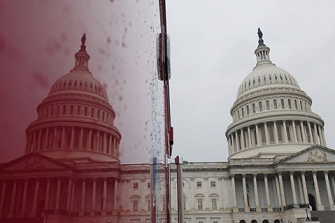
William Jones: Neocons shaping a new enemy image of China
Since the declaration of this policy, the attempt to paint China as a major "opponent" to the US has become something of a whole-of-government affair. It is highly ironic that this occurs at a time when you have an elected president, whose explicit goal had been to create a working - and friendly - relationship with both China and Russia. But US President Donald Trump' s unfortunate focus on trade as the key to reviving the American economy has unfortunately contributed to this as well.
2019-12-25 -

John Ross: How significant is the phase-one deal?
Last Friday, it was announced that China and the U.S. have agreed on a phase-one trade deal. As the full text of the agreement has not been made public yet, it is not immediately clear what the specific items agreed upon are. Nevertheless, many people on both sides have hailed it as practical progress in the trade talk. John Ross shares his thoughts on the conclusion of the deal and what the future holds for China-U.S. relations.
2019-12-20 -

Ding Gang: How will Europe respond to China’s rise?
Two recent events in Europe have been extensively followed by Chinese media. First, as UK's general election was held on December 12 amid a volatile political climate, Brexit became a foregone conclusion. Second, the 5G technology of Chinese tech giant Huawei is facing resistance in Europe. The two events are landmarks in China-Europe and Asia-Europe relations in the 21st century.
2019-12-20 -
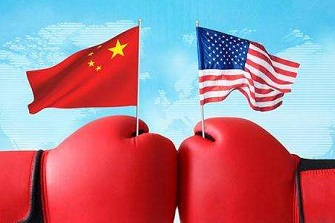
William Jones: Phase one deal, light at the end of the tunnel?
A lot of people breathed somewhat easier as the announcement came out that U.S President Donald Trump was ready to accept the partial agreement negotiated with China on trade and would not impose the tariff increase on Chinese products scheduled for December 15. There was little fanfare regarding the agreement, though. President Trump agreed to it at a meeting of his advisers on Friday and Michael Pillsbury, who has a strong bias against China but is an adviser to the president on China, elaborated on the discussion with the president on Fox's Lou Dobbs.
2019-12-18 -
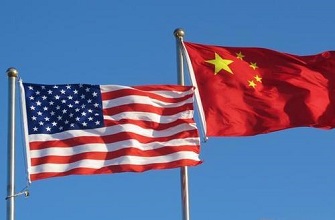
Zhao Minghao: Uncertainties remain in China-U.S. trade negotiations
China and the U.S. have announced the conclusion of phase one trade deal in a bid to ease the trade war. President Trump called it an "amazing deal" and revealed that the two sides would begin negotiations on the phase two deal soon. It's clear that the U.S. is getting softer on China than before. The White House is trying to use the China-U.S. trade deal and the signed U.S.-Mexico-Canada agreement as leverage to get Trump out of the political conundrum triggered by the impeachment process.
2019-12-16 -

William Jones: Will Congress' Uygur bill provide 'aid and comfort' to our enemies?
Recent legislation, by the U.S. Congress targeting Chinese officials tasked with the goal of preventing terrorism in the northwestern region of China, Xinjiang, will no doubt provide "aid and comfort" to some rather despicable characters who view the United States and China as the "Great Satan," namely supporters of the East Turkestan Independence Movement, labeled by the United States as a terrorist organization shortly after 9/11.
2019-12-13 -
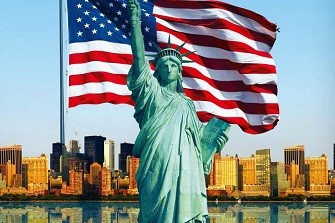
Liu Zhiqin: Does the US have shortage of philosophers?
The US can boast of a good many world renowned scientists, skilled diplomats, top sportsmen and numerous arts and culture icons. There is no shortage of military strategists or writers either. Yet this promised land seems to run low on philosophers. Isn't it paradoxical?This wealthiest country on the Earth has the creme de la creme from all walks of life, and top notch professionals command the best salaries. All types of professionals except philosophers have a market value in the US. They don't have much of a podium, and have a small fan base. Not to mention, their work is not up to American standards.
2019-12-13 -
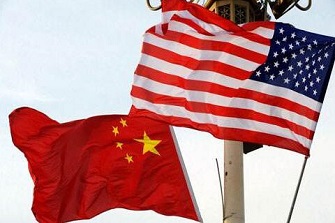
Wang Peng on China-US Relations in the Xi and Trump Eras
The trend of increasing polarization in U.S. domestic politics has made it so that current and future governments, no matter which political party, will find it difficult to propose, implement, and maintain a stable and peaceful China policy. It will be easier to go toward an extreme. This is because office holders (including presidential candidates), in a situation where it’s more and more difficult to reconcile political differences, will be forced to adapt to this polarization (or even make use of it, following the methods of Trump himself).
2019-12-12 -

Wang Wen: Russia, China need strategic reassurance
Over the past three years, I have worked with Glazyev to promote seven rounds of China-Russia economic think tank dialogue. He led delegations of Russian elites to Chinese cities and has been striving to make Russia look east. Glazyev believes China's experiences - that the country doesn't follow Western-style democracy but pays more attention to the modernization of national governance; that it has optimized allocation of resources and established the world's most complete industrial chain through formulating five-year plans; that it has set up a diverse financial system under the regulation of the central bank - are of immense value to Russia.
2019-12-10 -

China-US trade down 11.1% from Jan-Nov, still ‘positive’ in general
China's trade with the US plunged 11.1 percent to 3.4 trillion yuan ($483 billion) in the first 11 months of the year as the long-running bilateral trade war continued to batter both sides, according to customs data released on Sunday. The 11-month decline widened from a 10.6 percent contraction in the first 10 months. However, China managed to make up for its worsening trade with the US by beefing up trade with other markets, and it achieved what experts described as generally positive trade volume this year.
2019-12-09 -

China, Russia inaugurate east natural gas pipeline
Chinese President Xi Jinping and his Russian counterpart Vladimir Putin inaugurated the China-Russia east route natural gas pipeline by video link-up on Monday sending a signal that energy and cooperation in other sectors between the two countries are becoming the key to boosting multilateralism. Entering service the same day, the pipeline will help Russia export up to 38 billion cubic meters of natural gas per year to China, according to an article posted on the China National Petroleum Corp (CNPC) website on Monday.
2019-12-09 -
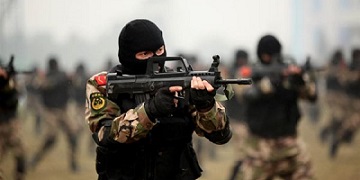
William Jones: With Xinjiang Bill, U.S. Congress drops the ball in war on terror
The U.S. Congress is really going overboard these days in its China-bashing fervor. With the obsession on foreign policy issues these days, with Russia, China and Ukraine seemingly topping their agenda, they seem to have little time for the issues of importance to the American people. While congressmen's posturing about alleged Chinese technology theft or Russian interference in U.S. elections will win them kudos from the foreign policy "wonks" in the Washington think-tanks, they will not gain much traction among their constituents, waiting eagerly for an infrastructure bill, a jobs bill, or medical insurance reform.
2019-12-09 -
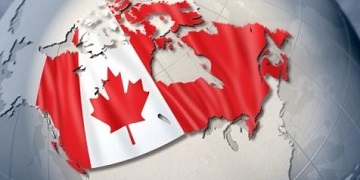
Chinese market too important for Canadian businesses to ignore
Canada Goose, Hatley, Factors Group - what do those names have in common? They are all Canadian companies that increased investment in China recently. Those companies' moves show a warming-up trend in bilateral economic relations between China and Canada, as Canadian enterprises value business opportunities in the Chinese market and won't stop their investment plans because of external pressure, experts said.
2019-12-04 -
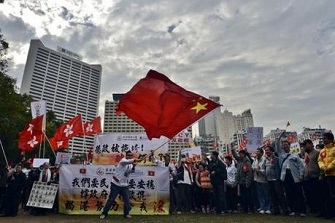
Wang Yiwei: US incites violence by passing HK laws
The US has targeted Hong Kong not only because of ideology and alleged violation of human rights and democracy in the SAR, but also, and more importantly, because it wants to slow China’s rise by curbing the global financial hub’s role as “bridge” in the Guangdong-Hong Kong-Macao Greater Bay Area, the Belt and Road Initiative and the internationalization of the renminbi. It wants to make Hong Kong a piece on its chessboard to keep China in check and serve the vested interests of the US and the West.
2019-12-02 -
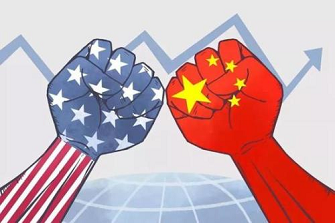
He Weiwen: China-U.S. Decoupling Is Just a Daydream
The New Economy Forum in Beijing sent a meaningful signal recently: It’s not only academic leaders but members of the public in China and the United States who are worried about the possible decoupling of the world’s two largest economies. Decoupling, in the words of Henry Paulson, former U.S. treasury secretary, would mean the rise of an “Economic Iron Curtain.” Decoupling has been advocated repeatedly by White House hawks as a way of curbing China-U.S. relations in economy, trade, investment, technology and people-to-people exchanges. Their purpose is to check China’s rise as a strategic rival.
2019-11-29 -

He Yafei: Decoupling U.S.-China Ties Is Not An Option
2019-11-27 -

William Jones: The source of Hong Kong's problems lies in Washington
While President Trump maintains a guarded silence on the violence in Hong Kong, and is getting hit by much of the conservative press for his not speaking out "in support of" the bomb-throwers on Hong Kong streets, many of his underlings are playing these provocations to the hilt, just stopping short of breaking with the President's hope that this all will end peacefully.
2019-11-20 -
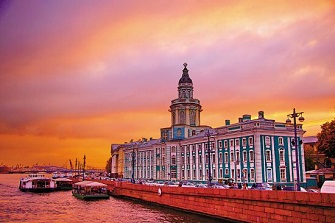
Wang Wen: Witnessing progress through wheels of time
Nevertheless, from these trips I have recognized that history is unpredictable. The transformation from glory to decay, and from unity to division is always hard to notice. The political unrest in Chile and the Hong Kong Special Administrative Region of China in 2019 has further proven this. Under such metamorphosis, China's rise has reached a moment that is the nearest to the country's great rejuvenation. The Chinese need to observe the world more carefully, remain humble and take lessons from those once powerful major countries and emerging economies.
2019-11-19 -
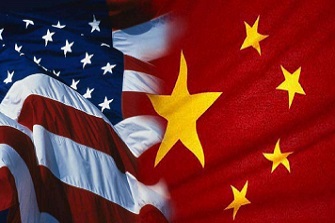
Zhao Minghao: Great importance attached to phase one China-U.S. trade deal
Simultaneous tariffs cancellation on each other's goods is an important condition for China and the U.S. to reach a "phase one" trade deal, said Gao Feng, spokesperson for China's Ministry of Commerce at a press conference held on November 7. The phase one trade deal is an important step towards the unwinding of a trade war that has inflicted significant damages to the interests of both sides. As Republican Senator David Perdue of Georgia said, the amount of trade in the phase one deal is modest, but it can prevent the two countries from slipping into a "Cold War."
2019-11-08 -
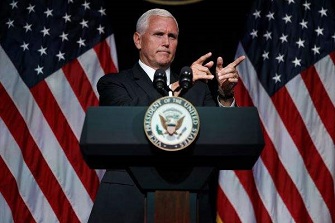
Zhao Minghao: Pence Speech Sent Confusing Signals
As China and the United States continued phase one of their consultations aiming for a trade deal, U.S. Vice President Mike Pence delivered a speech at the Wilson Center on China policy in which he said the U.S. is seeking “a fundamental restructuring of our relationship with China.” About a year ago, his speech on the same topic at the Hudson Institute was widely seen as a declaration of a new U.S. cold war with China.
2019-11-07
























































































 京公网安备 11010802037854号
京公网安备 11010802037854号





